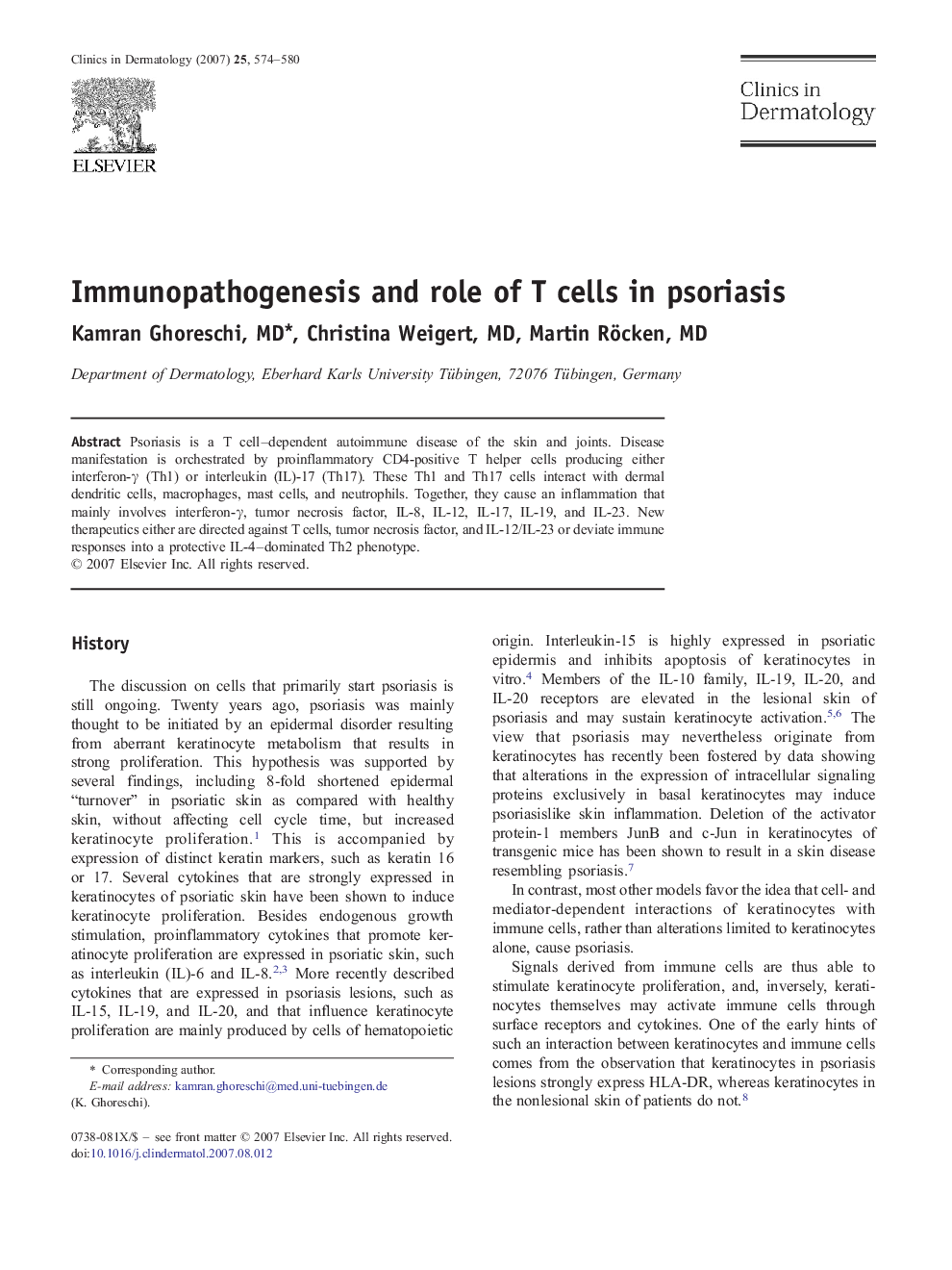| Article ID | Journal | Published Year | Pages | File Type |
|---|---|---|---|---|
| 3195204 | Clinics in Dermatology | 2007 | 7 Pages |
Abstract
Psoriasis is a T cell–dependent autoimmune disease of the skin and joints. Disease manifestation is orchestrated by proinflammatory CD4-positive T helper cells producing either interferon-γ (Th1) or interleukin (IL)-17 (Th17). These Th1 and Th17 cells interact with dermal dendritic cells, macrophages, mast cells, and neutrophils. Together, they cause an inflammation that mainly involves interferon-γ, tumor necrosis factor, IL-8, IL-12, IL-17, IL-19, and IL-23. New therapeutics either are directed against T cells, tumor necrosis factor, and IL-12/IL-23 or deviate immune responses into a protective IL-4–dominated Th2 phenotype.
Related Topics
Health Sciences
Medicine and Dentistry
Dermatology
Authors
Kamran Ghoreschi, Christina Weigert, Martin Röcken,
